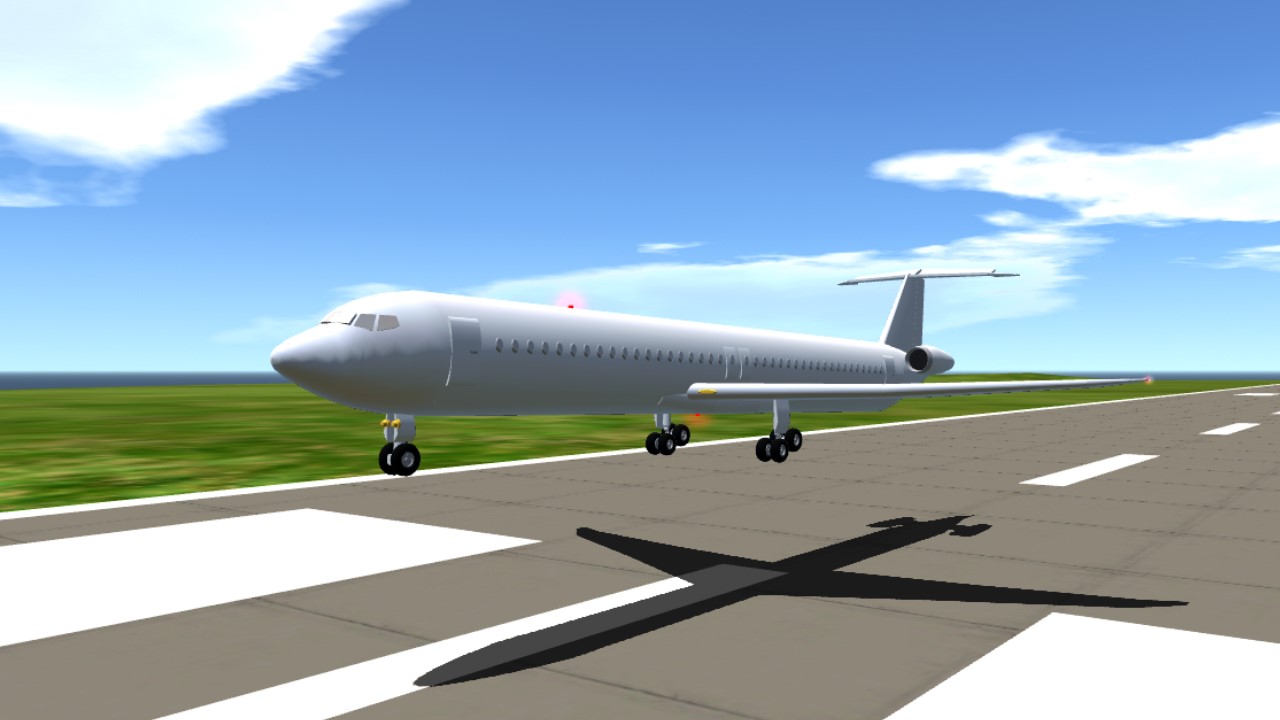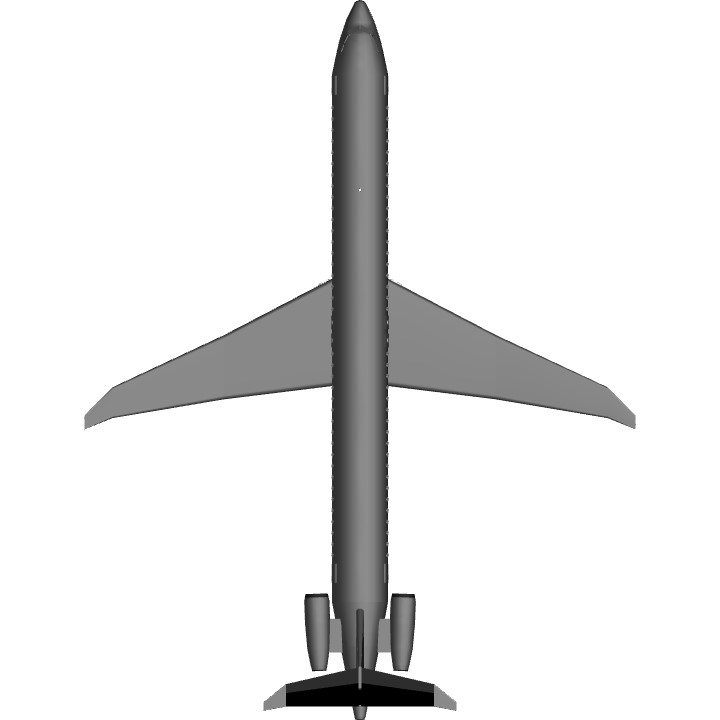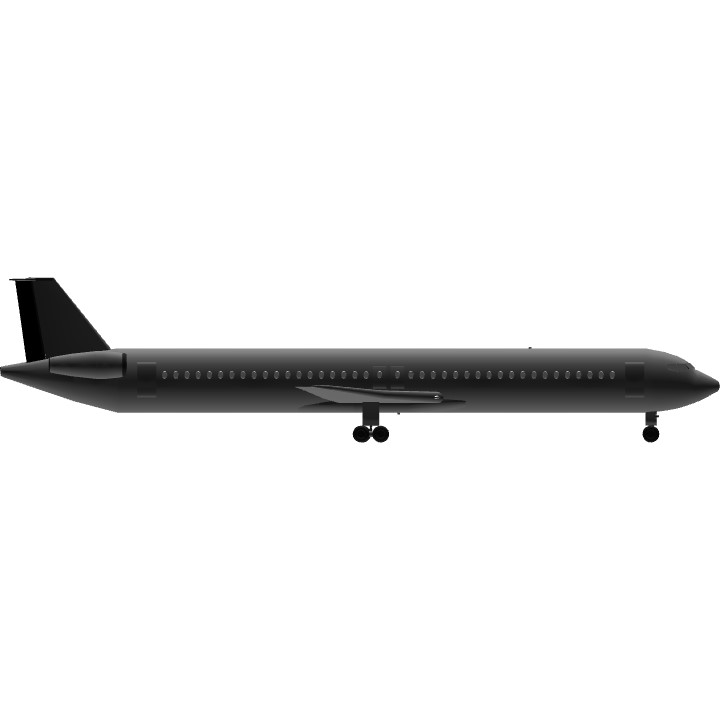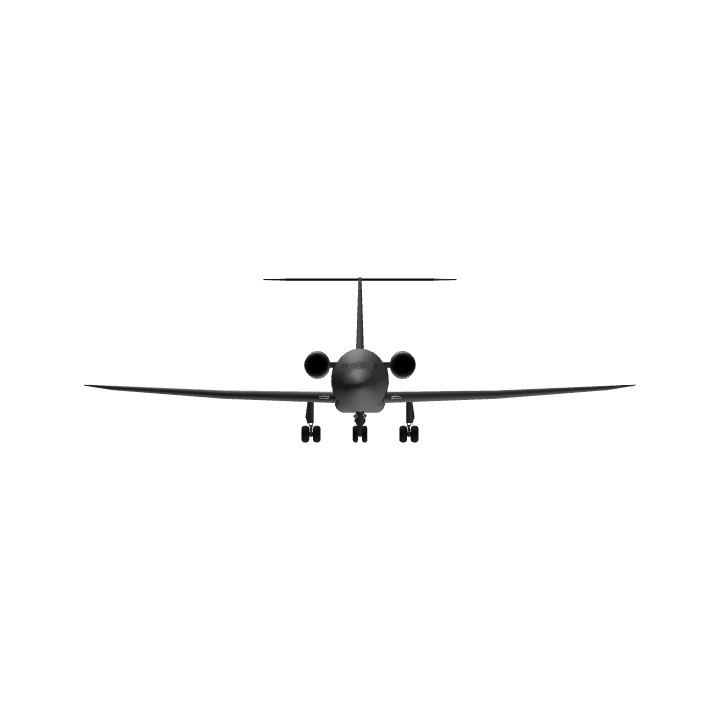History:
After WWII, Boeing, mainly military aircraft manufacturer, was in a difficult situation. The disaster that had been the Boeing 377 Stratocruiser nearly bankrupted Boeing. Then in 1950 Boeing started thinking about new planes, powered by jet engines. Jet engines had started to appear during WWII in military aircraft, but this only happened with passenger planes after the end of the war, with the De Havilland Comet. Boeing, which at that time was in a severe economic crisis, had developed the B-49 and was developing the B-52, two military jet bombers. Boeing was not well known for commercial aircraft, contrariwise, it was practically only known for military aircraft. Therefore, this would be the great opportunity to enter the civil market. Boeing was working on a civil version of the Boeing 367-80, which would later become the Boeing 707, however, at the request of American Airlines, Boeing began to develop a smaller version, with only two engines for continental flights, mainly between New York and Los Angeles and even inside the Europe. This version would be the Boeing 713, smaller, for fewer passengers, less cargo and with less range, but much more efficient on short and medium-haul routes. Initially, the two planes would be launched together, but the 713 version was ready first and that is why it was launched earlier, in December 1956. American Airlines was the launcher of the model and ordered 20 units and later more 40 units. The main competitor of this plane was the SE-210 Caravelle and later the Douglas DC-9. Due to various factors only 73 aircraft were delivered, which was replaced by the Boeing 727, which despite having more engines was more efficient and also carried more cargo and passengers. The operators of this plane were American Airlines, United Airlines and KLM.
Info and specs:
Number built: 77 (4 were used for testing and were never sold)
Role: Narrow-body medium range jet airliner
Top Customer: American Airlines (60 were operated by the company)
Engines: 2x Pratt & Whitney JT3D
Cruising Altitude: 38000ft
Cruising Speed (at 38000ft): 270knots (IAS)
Range: 4250km (2295nmi)
Passengers: from 100 (2 classes) to 120 (1 class)
Controls:
AG1- Gear Lights
AG2- Landing Lights
AG3- Nothing
AG4- Nothing
AG5- Nothing
AG6- Nothing
AG7- Night Flight
AG8- Nothing
I did this build for the Vintage Airliner Challenge by @thecatbaron
Enjoy!
Build by: @gmmmsoares
Specifications
Spotlights
- ImperialJapanese 3.8 years ago
General Characteristics
- Predecessor Vintage Airliner Challenge [CLOSED]
- Created On Windows
- Wingspan 80.9ft (24.6m)
- Length 105.5ft (32.2m)
- Height 24.1ft (7.4m)
- Empty Weight 27,753lbs (12,588kg)
- Loaded Weight 44,170lbs (20,035kg)
Performance
- Power/Weight Ratio 0.508
- Wing Loading 60.3lbs/ft2 (294.4kg/m2)
- Wing Area 732.5ft2 (68.0m2)
- Drag Points 19214
Parts
- Number of Parts 198
- Control Surfaces 5
- Performance Cost 1,014





@SilverStar Ok, thanks for the tip :)
@gmmmsoares it will help you to make more realistic airplanes
Oh and BTW thanks @CatAircraftmanufacturer2 for the Spotlight!
@SilverStar I didn't use blueprint in this plane, only in the cockpit bc I like the shape of the 727/737/707 cockpit, because this is a fictional plane, but yeah I'll try next time.
Looks like the wings aren’t well positioned
You should try to use blueprint feature
@gmmmsoares de boa, o fato de não ter flaps só foi uma observação.
@ACBAeronauticalIndustries Eu estava a pensar fazer flaps, porém isso ia interferir um pouco com as asas, que foi um grande problema que eu tive para fazer já que para ficarem mais bonitas tive de fazer com fuselagem, portanto acabei por abandonar isso, mas no futuro posso fazer uma versão com flaps :)
Gostei do avião, desing bonito bom para controlar. Só não gostei do fato de não ter flaps.
@Thecatbaron Ok, no problem man.
Yeah I understand, the caravelle was actually kinda an issue for me earlier since it technically fell under the challenge requirements but it looked like a much more modern design. I just didn’t want a bunch of more “modern” jet designs.
@Thecatbaron I understand you, but my propose were a Boeing version of the SE-210 Caravelle lauched in 1955, so yeah. Oh and I wrote in the discription that this aircraft was launched in 1956. But yeah, no problem.
This entry pushes the requirements of the challenge a tad bit much, When I said early jet airliners I meant the very first ones of which didn’t really fit the conventional norms of jet airliner we see today. This is like a DC-9 type airliner which had its first flight in 1965 which falls outside the challenge requirements. I’ll allow it but this isn’t really what I wanted for the challenge.